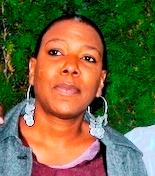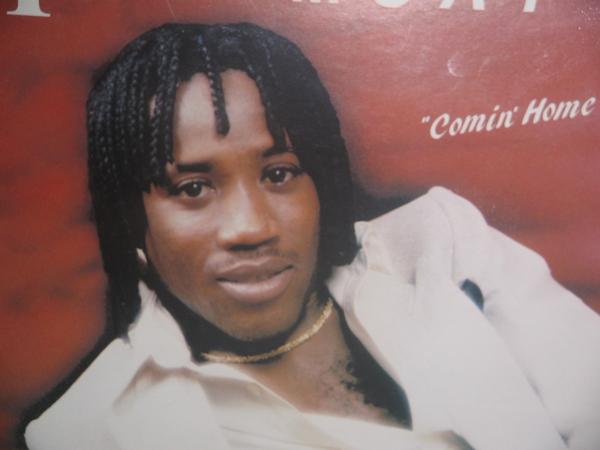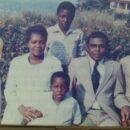Sexuality, Identity and LGBT Rights in Liberia: Illegal and Invisible – By Stephanie C. Horton

Clearly, in times of chaos and anarchy, the vulnerable and powerless are always attacked. It’s a short step from there during a fragile peace to judgments like: “Who is causing the decay in society? Who is upsetting the social order?” The master narrative is, “If we can just get rid of those people, we can go back to achieve our ideal existence.”
In 2001, while insurgent gay voices were speaking out across the continent, Liberia’s then President Charles Taylor threatened heightened surveillance to flush out homosexuals. The deviant sodomite archetype served Taylor’s psychological drama, but he was inciting an internal conflict that hadn’t existed. Gay and lesbian Liberians generally did not disclose their identities in public. And though penal law forbids any act between individuals considered “deviant” by definition, overt discrimination in relation to sexual orientation wasn’t practiced. But Taylor the warlord could not invent himself as a moral leader, a statesman, without targeting an opposite. If you need to reconstruct yourself like Taylor had to, after so much killing, it serves you well to use a buffer. There’s always an absolute positive and negative extreme in identity politics. The gender binary “” the idea of a split (you’re either this or that)””supported Taylor’s grandiose self-perception.
He was exceptional, Taylor claimed, not only in contrast to the other warlords he’d outsmarted to seize the presidency; he was also man enough to cleanse the land of walking, breathing abominations. The unspoken subtext was, “I may not be perfect, I may have committed massacres, unspeakable atrocities, but I’m not a pervert. At least everybody knows I’m not gay.”
Before Taylor’s sinister pronouncement, there was Tecumseh Roberts, Liberia’s own Michael Jackson, a beautiful songbird trapped during the war in territory controlled by warlord Prince Yormie Johnson (now a senator, the man who filmed, directed and starred in the infamous video of President Samuel Doe’s slow torture to death).
Charged a homosexual, Tecumseh was subjected to a voyeuristic anal examination, then murdered. A well-loved human being, an important and respected artist was butchered for no reason by inquisitors whose extremist ideology was predicated on fundamentalist ethnocentric politics. What Liberians remember most today is the obscene story Johnson told about Tecumseh’s murder during his testimony before the Truth and Reconciliation Commission, that Tecumseh had a “rotten” body cavity, conjuring an image that violated Tecumseh’s personal dignity and exploited his naked body even in death.
To declare yourself gay, lesbian, bisexual or transgender in Liberia today you have to be willing to risk your life in daring to claim full citizenship. If not an actual death, you are condemned to suffer social death and religious alienation. Incendiary language will be used against you in God’s name. The constitution will not protect you. If you accept the premise that God has supremacy, the collective will also use your faith against you: not only will you be denied your humanity, you will also be denied access to God.
FrontPage Africa online reports that Presidential Press Secretary Jerolinmek Piah told journalists at a press briefing in mid-January that President Sirleaf would veto any legislation associated with gay rights or same-sex marriage. Writing from the epicenter, Liberian feminist poet, social critic and rights activist Korto Williams states, “The rights of sexual minorities are threatened by dutybearers, including the government of Liberia and the national parliament. Homosexuality is criminalized and religious institutions use their influence to marginalize the LGBT community, with the media (social media included), government and legislature taking defined, homophobic positions on the decriminalization of homosexuality.”
The United Nations Human Rights Council adopted the first ever UN resolution on the human rights of lesbian, gay, bisexual and transgendered persons in June of 2011. This resolution finally recognizes the human rights abuses and violations that LGBT people face around the world. Liberia is a founding member of the UN and has ratified major international instruments on women’s and people’s rights, including the African Union Protocol to the African Charter on Human and Peoples’ Rights and the Rights of Women in Africa, which is significant considering the current volatile homophobic climate in Liberia.
Hate speech in Liberia is however allowed to proliferate largely unimpeded, as the following excerpt culled from an online newspaper article shows: “Gays are abnormal sexual agents of obliteration that have been assigned by the kingdom of darkness to undermine and thwart the progressivity, productivity, and transformation of mankind. People who involve themselves in this harmful misdeed and transgression must be denied, exposed, disgraced, arrested, prosecuted, ostracized, ex-communicated and ridiculed by their non-gay colleagues, families and society at large. Our foreign partners must understand that same-sex marriage is an offense to our religious and cultural principles.”
Anything goes. And of course such people believe they are the keepers of ethics and morality, and with God on their side, they can do and say just about anything they want to.
Vocal activist Archie Ponpon of the Movement for the Defense of Lesbians and Gays Rights sent out this message in a recent press release: “We have gone into hiding because of public outrage and threats of attacks on our lives.” A member of his group was stoned the week before on the University of Liberia campus.
There is a new group called the National Movement Against Same Sex Marriage in Liberia (NAMASSEM). A spokesperson for another group, the Indigenous Movement of Liberia, said in a statement to the press: “Homosexuality is ungodly and against Liberia’s cultural tradition. Gay right advocates, including Archie Ponpon, must not take their campaign to the indigenous people who strongly believe in their tradition, the Holy Bible and Holy Koran. The Indigenous Movement is about to launch a nationwide anti-gay campaign to avoid what happened to Sodom and Gomorrah, during the days of Old.”
According to a reporter, Legislator George Blamoh Wesseh said: “It is demonic and evil. It actually beats my imagination for any young man and woman to think of same-sex marriage. Are they real human beings or what?”
Speaker of the House of Representatives Alex Tyler, Representative Prince Tokpah, and Representative Edward Karfiah have all assured their constituents, according to news reports, that no LGBT rights bill will ever pass on their watch.
The Masses Against Gay Activity in Liberia (MAGAL) openly urges the government to “relentlessly wage war against homosexuality and lesbianism.” They propose that the “government establishes a rigorous Task Force or Special Unit to expose and arrest Gays and lesbians who are operating underground”; that “The views and opinions of so-called gay-advocates be barred and banished totally from the Liberia society”; that “Anyone caught in the act of homosexuality be arrested and prosecuted” and “imprisoned for twenty years with hard labor.”; that “Anyone caught promoting gayism and lesbianism through any medium be arrested and prosecuted; and if found guilty be imprisoned for ten years with treatment of hard labor.”: that “Anti-gay lessons be embedded in Health Sciences of our National Curriculum for our students in primary, secondary, and tertiary institutions.”
It is urgent that those of us truly committed to a new political imagination act now to ensure that the human rights debate currently taking shape in Liberia respects the rights of all citizens regardless of sexual orientation. As New Jersey Mayor Cory Booker insists, “We should not be putting civil rights issues to a popular vote. No minority should have their rights subject to the passions, the sentiments, of the majority.” These rights should be guaranteed, rather than their withholding used as political leverage in debates divorced from the reality of LGBT peoples’ daily struggles.
It is the duty of the government to serve and protect its entire constituency. I call on you to sign the petition asking the Executive Mansion to end discrimination against LGBT Liberians.
May this storm be brief and our unity strong when the skies clear.
Sign the petition: http://www.change.org/petitions/the-executive-mansion-end-discrimination-against-gay-and-lesbian-liberians
Stephanie C. Horton is a Liberian writer and editor who has worked as a girls’, women’s, men’s and LGBT advocate, counselor, workshop facilitator and staff trainer for survivors of sexual violence.








How sad that so many Liberians are behaving no different from the Nazi behaved to and treated the Jews. I have found that many of those folks who are so anti LGBT are closeted. Look people, if you really check, each and every one of us has someone we care for or in our family that is gay. What are you going to do to them? Stone them? Ostricize them? Tar and feather them? Or come to an uncerstanding that God makes no mistakes in what he makes and everything has a reason and a reason for everything.
Miss Horton presents a very logical and succinct defense to a very emotional issue. Where others rely on the use of intimidation or the threat of violence to support their case, Horton simply applies the law. Horton reminds us that Liberia is a founding member of the UN and that Liberia will be in violation of a major UN resolution were the rights of other citizens to be marginalized. I will further argue that Liberia owes its stability to the presence of UN Peace Keeping forces. Is Liberia free to enjoy the protection of the UN while ignoring its basic mandates?
But in addition to our obligations and alliance to the UN, who could argue the fact that our Constitution guarantees personal freedom of the citizen?
Article 11 partially states: “All persons are born equally free and independent and have certain natural, inalienable rights, among which are the right of enjoying and defending life and liberty…”
Those who insist on using the Bible or Koran must be reminded that ours is a secular state; a democracy, not a theocracy. The constitution is supreme in such matters, and even the President, Speaker and members of the House need to be reminded that their personal beliefs based on religion should take a back seat to the constitution. Let the constitution be our guide on this one.
[…] Illegal and Invisible: Sexuality, Identity and LGBT Rights in Liberia …Challenging the received idea that labour migration is driven purely by rational economic forces, Masculinity, Sexuality and Illegal Migration draws upon … […]